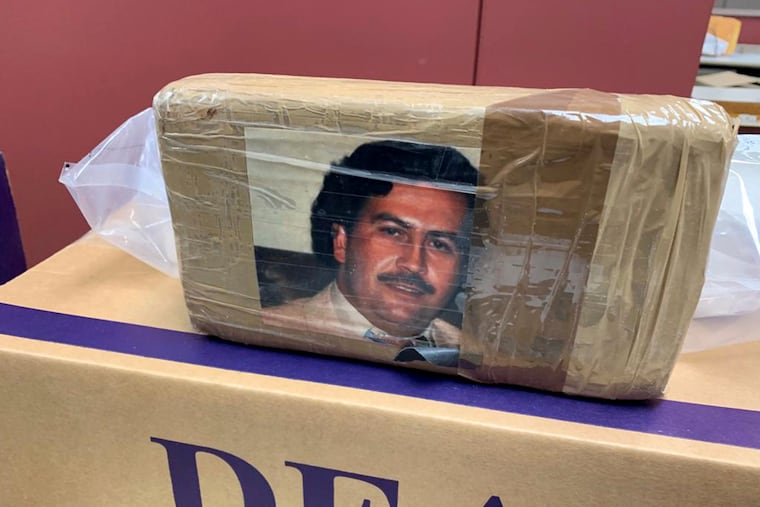Pablo Escobar’s crime partner freed in U.S., goes to Berlin
Pablo Escobar’s crime partner and one of Colombia’s pioneering “cocaine cowboys” has been released after a long prison sentence in the U.S. and been deported to Germany

MIAMI — Pablo Escobar’s crime partner and one of Colombia’s pioneering “cocaine cowboys” has been released after a long prison sentence in the U.S. and been deported to Germany, his lawyer said Wednesday.
Carlos Lehder left on a flight for his new home in Berlin on Monday after being released from a U.S. prison in Florida, where he had been held as part of the government's witness protection program, attorney Oscar Arroyave told The Associated Press.
Lehder, 70, was one of the leaders with Escobar of the Medellin cartel that dominated the global cocaine trade in the 1980s. At the same time an admirer of both John Lennon and Adolf Hitler, Lehder is portrayed in the Netflix series “Narcos” as a wild, womanizing criminal who set up a transit point for cocaine-laden aircraft on a private island, Norman's Cay, a few hundred miles off the coast of Florida in the Bahamas.
His extradition to the U.S. in 1987 kicked off a period of intense U.S. targeting of Colombian narcos, who at the nadir of the bloody cartel turf wars managed to bribe and threaten their way out of prosecution in the South American country.
Escobar, his partner turned rival, never saw a U.S. jail cell, dying in a shootout with police in Medellin in 1993. But thousands of Colombian drug traffickers have since gone to U.S. prisons, many of them serving far less time than Lehder.
Arroyave, who didn't represent Lehder at the time of his arrest, said federal sentencing guidelines make it very costly for defendants who fight charges and lose in a jury trial.
“Nobody accused of drug trafficking goes to trial in the U.S. anymore,” said Arroyave, who said he plans to travel soon to Berlin to share a celebratory beer with his client after such a long ordeal. “Had he pled guilty, he would’ve been home 15 years ago. In today’s world, there are drug traffickers far bigger that Carlos Lehder who pay five to six years."
Lehder was originally sentenced to 135 years plus life, but after agreeing to testify against former Panamanian strongman Gen. Manuel Noriega, he had his sentence reduced to 55 years.
Lehder acquired German citizenship through his father, an immigrant to Colombia. Arroyave said Lehder has no interest in returning to Colombia and German authorities provided assistance in allowing him to resettle in his adopted homeland.